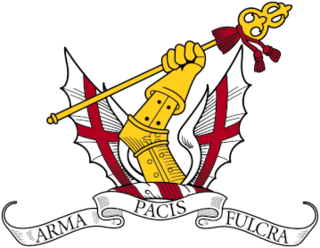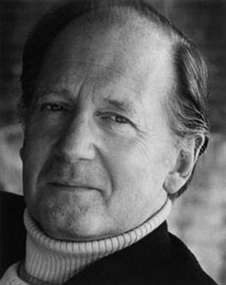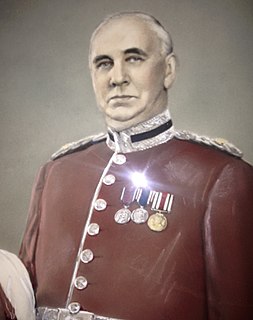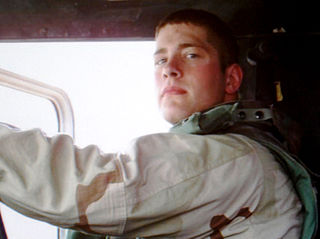This article relies largely or entirely on a single source .(April 2022) |
James Pattinson (15 December 1915 - 18 October 2009) was an English author of more than 100 thrillers. [1]
This article relies largely or entirely on a single source .(April 2022) |
James Pattinson (15 December 1915 - 18 October 2009) was an English author of more than 100 thrillers. [1]
James Pattinson was raised in the village of East Harling, Norfolk. He attended Thetford Grammar School. [1]
He volunteered for the Royal Artillery in 1939, and in 1941 was transferred to the maritime arm to serve as a gunner on DEMS. He served on convoys to Russia, in the Mediterranean and the Atlantic.
After the war he returned to poultry farming in Norfolk and began work on his first book in 1950.
He was unmarried.
Many of Pattinson's novels were based on his experience as a gunner on the Arctic convoys in World War II. His first published work was Soldier, Go North in 1954 and his last was The Unknown in 2008. [1]

The Honourable Artillery Company (HAC) was incorporated by royal charter in 1537 by King Henry VIII, and it is a now registered charity whose purpose is to attend to the "better defence of the realm". This is primarily achieved by supporting the HAC regiment and a detachment of City of London Special Constabulary. The HAC regiment is the second-oldest military corps in the world. The word "artillery" in "Honourable Artillery Company" does not have the current meaning that is generally associated with it, but dates from a time when in the English language that word meant any projectile, including for example arrows shot from a bow. The equivalent form of words in modern English would be either "Honourable Infantry Company" or "Honourable Military Company".

USS Thompson (DD-627) was first a Gleaves-class destroyer, then became an Ellyson-class destroyer minesweeper. She was the second Navy ship named "Thompson", and the first named in honor of Robert M. Thompson.

The Battle of the North Cape was a Second World War naval battle which occurred on 26 December 1943, as part of the Arctic campaign. The German battleship Scharnhorst, on an operation to attack Arctic Convoys of war materiel from the Western Allies to the Soviet Union, was brought to battle and sunk by the Royal Navy – the battleship HMS Duke of York with cruisers and destroyers including an onslaught from the destroyer HNoMS Stord of the exiled Royal Norwegian Navy – off Norway's North Cape.

Michael William ffolliott Aldridge was an English actor. He was known for playing Seymour Utterthwaite in the television series Last of the Summer Wine from 1986 to 1990 and he had a long career as a character actor on stage and screen dating back to the 1930s.

Jewel Franklin Guy, known professionally as James Best, was an American television, film, stage, and voice actor, as well as a writer, director, acting coach, artist, college professor, and musician. During a career that spanned more than 60 years, he performed not only in feature films but also in scores of television series, as well as appearing on various country music programs and talk shows. Television audiences, however, perhaps most closely associate Best with his role as the bumbling Sheriff Rosco P. Coltrane in the action-comedy series The Dukes of Hazzard, which originally aired on CBS between 1979 and 1985. He reprised the role in 1997 and 2000 for the made-for-television movies The Dukes of Hazzard: Reunion! and The Dukes of Hazzard: Hazzard in Hollywood (2000).

Donald Daniel Houston was a Welsh actor whose first two films—The Blue Lagoon (1949) with Jean Simmons, and A Run for Your Money (1949) with Alec Guinness—were highly successful. Later in his career he was cast in military roles and in comedies such as the Doctor and Carry On series.
Andrew Victor McLaglen was a British-born American film and television director, known for Westerns and adventure films, often starring John Wayne or James Stewart.

James Rutherfoord Worsfold Thomson, known professionally as James Bree, was a British actor who appeared on stage, and played many supporting roles in both film and television.

Roy Stewart was a Jamaican-born British actor. He began his career as a stuntman and went on to work in film and television.

Admiral of the Fleet Sir Michael Patrick Pollock, was a senior officer in the Royal Navy who rose to become First Sea Lord and Chief of the Naval Staff in the early 1970s. In the Second World War, he was an officer on ships tasked with protecting convoys in the Atlantic and the Mediterranean, and was gunnery officer on the cruiser HMS Norfolk when she fought the German battleship Scharnhorst during the Battle of North Cape. He later commanded the aircraft carrier HMS Ark Royal, and hosted Ian Smith on HMS Tiger. In retirement, he held the position of King of Arms of the Order of the Bath and Gloucester King of Arms, with responsibility for heraldry in Wales.

Major General Sir Charles Rosenthal, was an Australian architect, soldier, musician and politician. He commanded units of infantry in the Australian Imperial Force during the First World War, and in the 1920s was elected as a member of the New South Wales Legislative Assembly.

Sir Richard Winfrey was a British Liberal politician, newspaper publisher and campaigner for agricultural rights. He served as Member of Parliament for South West Norfolk, 1906–1923, and for Gainsborough, 1923–1924.

Edmund Ernest Garcia was a Rear Admiral in the United States Navy who commanded the destroyer escort USS Sloat during World War II and participated in the invasions of North Africa, Sicily, and France.

Lieutenant General Sir Ian Henry Freeland was a senior British Army officer, who served with distinction during World War II and most notably served as General Officer Commanding (GOC) and Director of Operations in security matters in Northern Ireland in the aftermath of rioting in 1969, and the beginning of the Troubles.

George James Odgers was an Australian soldier, journalist and military historian. Odgers served in the Australian Army as a private soldier and non-commissioned officer; and later in the Royal Australian Air Force becoming a group captain. He was one of the authors of the official history of Australia in World War II, Australia in the War of 1939–1945.

Sir Robert Pattinson, JP, DL was a British Liberal politician and businessman. Pattinson joined his family's railway contracting firm after finishing school and was quickly appointed to senior positions. In 1900, he became chairman of Ruskington Urban District Council and four years later joined Kesteven County Council, eventually becoming an alderman and serving as its chairman for 20 years between 1934 and his death in 1954. He chaired the Sleaford Liberal Association (1900–18) and was nominated as the party's representative for Sleaford shortly before World War I broke out. He contested Grantham unsuccessfully in 1918, but was returned for the seat in 1922, serving until he was defeated in the following year's general election. Several other unsuccessful attempts at a parliamentary career followed. He chaired several bodies responsible for maintaining Lincolnshire's waterways, served as a magistrate for Kesteven and Lindsey and sat as Lincolnshire's High Sheriff in 1941. Knighted in 1934, Pattinson died aged 82 in 1954 after several years of illness.

The Good Friday Ambush 2004 was an attack by Iraqi insurgents on April 9, 2004 during the Iraq War on a convoy of U.S. supply trucks during the Battle of Baghdad International Airport. It happened in the midst of the Iraq spring fighting of 2004, which saw intensified clashes throughout the country.
Kenninghall Road Mill is a Grade II listed tower mill at East Harling, Norfolk, England which has been converted to residential accommodation.

Garboldisham Mill is a Grade II* listed post mill at Garboldisham, Norfolk, that has been restored.
Lieutenant-Colonel Sir Julian Tolver Paget, 4th Baronet, was a British army officer and military historian who was the author of many books.